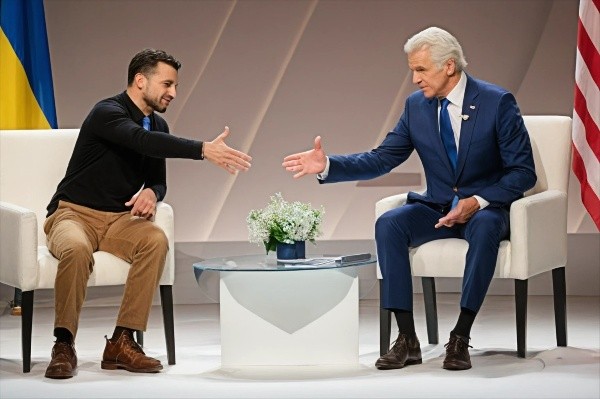Iran’s Plan to Strike Back Against the U.S.
Iran’s Military Preparations Following U.S. Attacks
Loading...

The move comes as Joe Biden heads into his final months in US office, with successor Donald Trump believed to be more favourable towards Russia.
A Significant Policy Shift
In a notable change in U.S. foreign policy, President Joe Biden has reportedly authorized Ukraine to utilize U.S.-supplied weapons to conduct strikes deep within Russian territory. This decision comes as Biden approaches the end of his presidency, with Donald Trump set to take office in January 2025, a leader perceived to be more sympathetic to Russia. Various news outlets, including Reuters, the Associated Press, and the New York Times, have confirmed this development through multiple sources familiar with the matter.
Ukraine's Planned Offensive
According to reports, Ukraine is preparing to launch long-range attacks using U.S.-provided weapons in the coming days. While the White House has yet to officially comment on the reports, Ukrainian President Volodymyr Zelenskyy indicated in a recent address that the missiles would “speak for themselves.” He emphasized that while media reports suggest permission has been granted for such actions, the actual strikes would not be publicly announced, underscoring the seriousness of the military operations planned.
Regional Reactions
The news has elicited varied reactions from international leaders. Polish Foreign Minister Radoslaw Sikorski welcomed the decision, asserting that the U.S. is responding to Russian aggression in a manner that President Vladimir Putin would understand. Conversely, Russian lawmakers have expressed grave concerns. Vladimir Dzhabarov, a member of the Russian parliament, warned that allowing Ukraine to strike inside Russia could escalate tensions to the brink of a third world war, promising an immediate response from Moscow.
Implications of the Decision
This policy shift marks a significant escalation in U.S. support for Ukraine, which has been struggling to fend off Russian advances. The Biden administration's decision to permit the use of long-range Army Tactical Missile Systems (ATACMS), capable of striking targets up to 190 miles away, reflects a growing urgency to bolster Ukraine's defense capabilities. Zelenskyy has been advocating for this level of support for months, aiming to target Russian military positions that threaten Ukrainian sovereignty.
Reports also suggest that the United Kingdom and France may follow suit, allowing their long-range missiles to be used by Ukraine against Russian forces, particularly in the Kursk region, which has seen increased military activity.
The Context of Biden's Decision
Biden's decision comes at a time when the dynamics of the conflict are shifting. The deployment of North Korean troops to support Russian forces has raised alarms in both Washington and Kyiv, prompting a reassessment of military strategies. Historically, Biden has been cautious about escalating U.S. involvement in the conflict, fearing that direct strikes could lead to a broader confrontation with Russia. However, the recent developments on the battlefield and the impending transition to a potentially less supportive U.S. administration have likely influenced his decision.
Looking Ahead
As Biden prepares to leave office, the future of U.S. support for Ukraine remains uncertain. Trump has indicated a more skeptical stance towards ongoing military aid, raising questions about whether he would reverse Biden's authorization for Ukraine to strike inside Russia. While Trump has promised to end the conflict swiftly, details on how he plans to achieve this remain vague.
In conclusion, Biden's authorization for Ukraine to use U.S. weapons against targets in Russia represents a pivotal moment in the ongoing conflict, with potential ramifications for both regional stability and U.S. foreign policy in the coming months. As Ukraine gears up for its offensive, the world watches closely to see how this decision will unfold and what it means for the future of the war.
Editor
Iran’s Military Preparations Following U.S. Attacks
Troops remain in five strategic locations, raising fears of renewed tensions and long-term occupation.
Opposition forces have taken control of the capital after a significant offensive. Here is how it unravelled.
